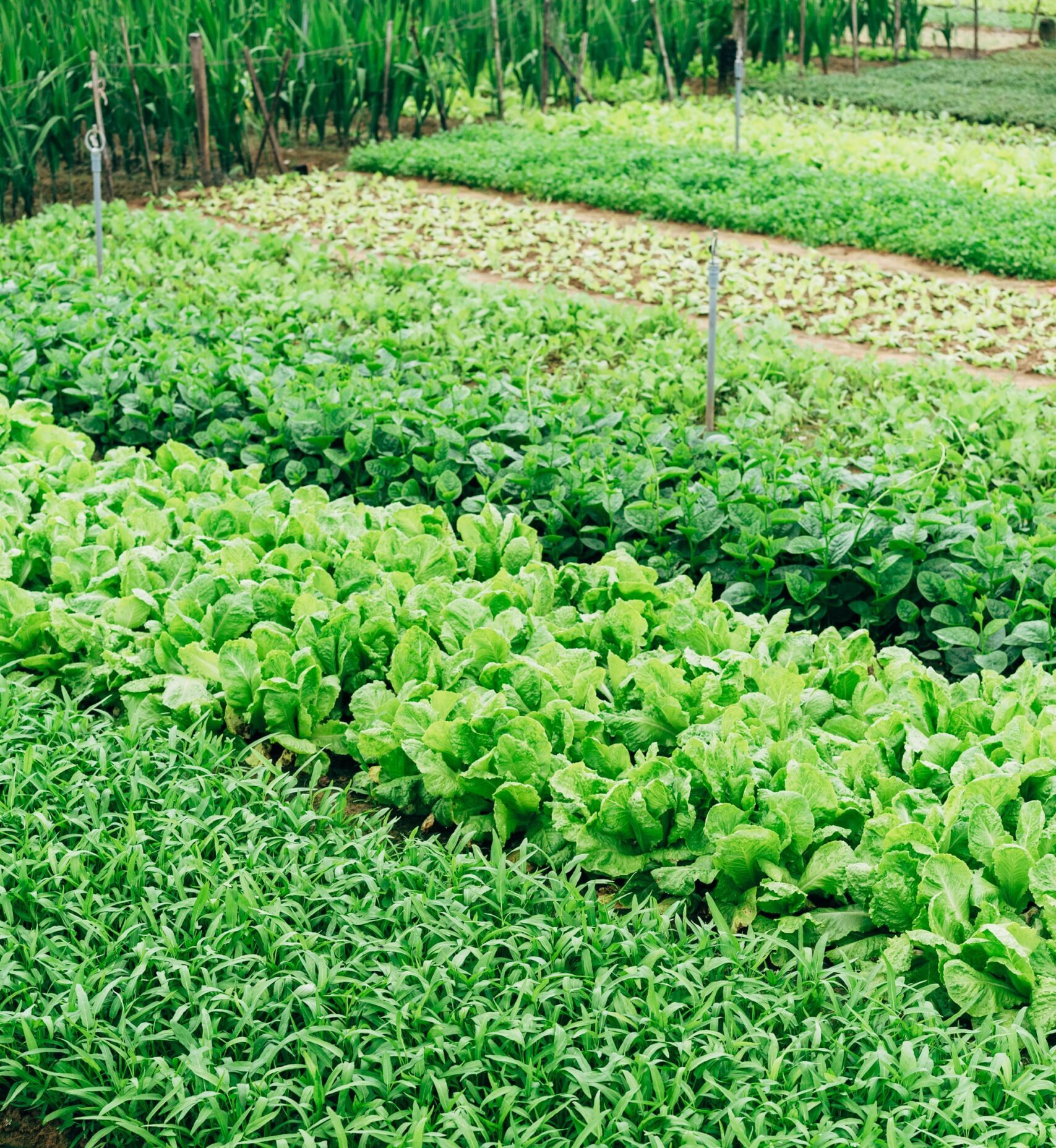With Veganuary seeming to have left many keen to continue their quest for sustainable living throughout 2019 and the vegan lifestyle itself growing in popularity more than we’ve ever seen before, I thought I’d elucidate a little-known aspect of veganism that you might not have previously considered. Specifically, agricultural practices and those businesses going above and beyond to ensure that their entire farming process is untouched by animal by-products. For those wanting every stage from seed to spoon to be void of animal products, this might interest you.

You’ve no doubt heard the same old facts and figures about switching to a plant-based diet for the increase in efficiency. If you’re vegan for the environment or even society at large, you’ll know that this diet is considered to be excellent for its maximal use of the planet’s finite supply of arable soil and fresh water. Veganism supports crop to table rather than crop to animal to table and this serves us well as a collective species when we think about our ever-increasing population and the plight of the drought, desertification and mass hunger.
Regardless of the specific diet you choose to follow, it’s important that we all pay better attention to the processing of our foods from farm to fork; educate ourselves so that we can make better decisions. After all, the fragile state of the planet depends upon it. With limited arable land due to nutrient-depleted soils and climate change shifting our deserts ever-further into temperate zones, it’s time for us to get smarter with our farming practices.
I recently learned about the Biocyclic Vegan Standard, which sprang to life in Germany in November 2017. With growing pressure on farmers to switch from animal manure and by-products such as feathers, bone and hair meal to “green” manure consisting of things like legumes and clovers, this resource came into existence to offer a robust, certifiable way of measuring thoughtful agricultural practices and it has since spread across Europe to places like France and Cyprus where it is gaining attention and promising a healthier environment for us all.
The story starts in 2005, when the Biocyclic Network Services began implementing special vegan agricultural principles in Greece and Cyprus. Emphasis was first placed on biodiversity and soil health. Wide crop rotations and the presence of hedgerows and flower beds has proved an excellent way of supporting invertebrates that aid in the decomposition process, boosting the quality of soil.
Next up, there are the anti-climate change benefits; vegan humus soil has a much higher CO2-binding capacity than animal manure. Also, the molecular structure of biocyclic humus means reduced leaching. This results in an improvement in groundwater quality leading to far less eutrophication of nearby lakes, rivers and streams.
Perhaps the most topical benefit of this standard, however, is the effect on human health. You’ve no doubt heard about the antibiotic crisis affecting many hospital patients around the world. Our obsession with antibiotics routinely given to animals housed in intensive facilities has driven bacterial resistance that renders many of our classic antibiotics useless in this day and age. The absence of animal husbandry on sites that have adopted the Biocyclic Vegan Standard means that the risk of soil contaminated by these industrial antibiotics (as well as growth hormones where these are also used) is dramatically reduced. This offers hope to the most immunocompromised of individuals.
Another way that the Standard supports our environment is that it takes a much more humanistic approach than many of the large-scale intensive agricultural facilities that have swept the globe in the last 50 years. One of the key principles of this ethos is that the network promotes small-scale family-run operations. This boosts local economies and encourages diversity amongst businesses, which further promotes soil biodiversity. It’s a win-win. A positive feedback loop.
Technological developments tend to happen exponentially and I think that bar a few questionable pursuits (such as the potentially devastating AI movement that’s creeping closer and closer onto the scene), I support an increase in efficiency, utilising bright minds with their excellent engineering ambitions. But it’s always wise to bear the Earth in mind and I like that this Standard does exactly like. Is it a model that promises a parabola in our practices? A boomerang effect away from the intensive agricultural mess we’ve got ourselves in? I certainly hope so. I think a combination of urban growing utilising hydroponics and the Biocyclic Vegan Standard implemented in more rural parts might just be the sustainable solution we’ve been looking for.
Veganism has come a long way from its old, lacklustre reputation of only dry lettuce and the odd almond. The creativity of mastermind chefs around the world has inspired us to be open to a whole host of possibilities when it comes to the way we might make pulled “pork” out of plants and “milk” out of oats, plant-based burgers that mimic rare meat and buffalo “chicken wings” that anyone watching the big game might enjoy. This open-mindedness has brought us on leaps and bounds and I’m excited to see what other innovative and tasty treats make their way onto the market in the next few years.
As this movement continues to grow, I hope that the Standard gains more attention and support from nations far and wide. The pursuit of veganism is part of a larger picture; one that focuses on our health and the planet’s biodiversity. Those practices that prepare the foods before we purchase them in our local store are an integral part of that, so I’m totally on-board with this one and excited for what the future holds.
Do you know where your veggies come from? How important are vegan agricultural practices to you?
Also by Kat: Vegan Winter Warming Rainbow Salad
A Truly Biodegradable Plastic Made Of Bacteria & Algae Gives Us Hope
Get more like this—Subscribe to our daily inspirational newsletter for exclusive content!
__




